Breast Augmentation in Phuket
Search and Compare the Best Clinics and Doctors at the Lowest Prices for Breast Augmentation in Phuket
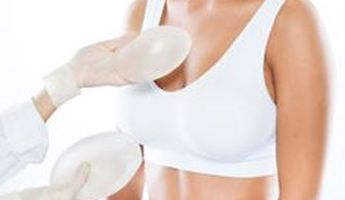
Find the best clinics for Breast Augmentation in Phuket
With Medijump you can browse 3 facilities offering Breast Augmentation procedures in Phuket. The cheapest price available is $1,098 in Nonthaburi
Breast Augmentation in Thailand
Price: $ 1,098
Breast Augmentation in Nonthaburi
Price: $ 1,098
Breast Augmentation in Chiang Mai
Price: $ 1,109
Hungary offers the best prices Worldwide
Price: $ 208
From 16 verified reviews
Soren Lim, 22 August 2022
I had a breast augmentation at Jungceylon Plastic Surgery Phuket and it was an amazing experience. The doctor was so knowledgeable and made me feel so comfortable. The results were even better than I expected; my breasts look so natural and perky. I'm very happy with the results and would highly recommend Jungceylon Plastic Surgery Phuket to anyone considering a breast augmentation.
From 15 verified reviews
Limbani, 28 August 2024
Excellent care and fantastic results! The staff at PPSI made me feel comfortable and supported throughout the entire process.
From 7 verified reviews
Brooke Coulter, 09 April 2022
My husband had 2 moles removed and it was a fab experience. Friendly, clean, calm service with a super price. So very happy we booked with Phibeauty.
Compare Before & After Photos of _procedure_photos.phpBreast Augmentation
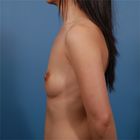

Full-side view
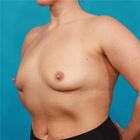
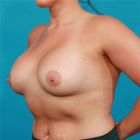
Half-side view


Front view
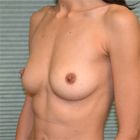

Half-side view
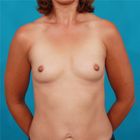
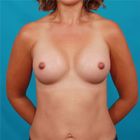
Front view
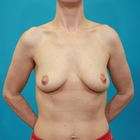

Front view
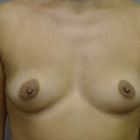
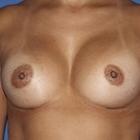
Front view
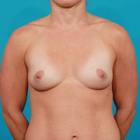

Front view
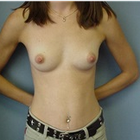
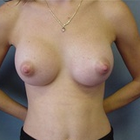
Front view
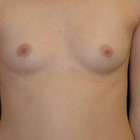
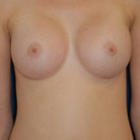
Front view
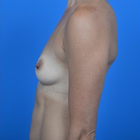
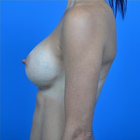
Full-side view
WHY US?
At Medijump, we're making medical easy. You can search, compare, discuss, and book your medical all in one place. We open the door to the best medical providers worldwide, saving you time and energy along the way, and it's all for FREE, no hidden fees, and no price markups guaranteed. So what are you waiting for?

Free

Best Price

Widest Selection

Risk-Free
What you need to know about Breast Augmentation in Phuket

Breast augmentation, also known as a Boob Job or Breast Enlargement, is a surgical procedure aimed at increasing breast size, enhancing shape, or improving symmetry. In Phuket, this procedure is carried out by board-certified plastic surgeons in accredited medical facilities, ensuring both safety and quality.
What is the cost of Breast Augmentation in Phuket?
Prices in Phuket are competitive, often offering savings without compromising on quality, especially when compared to costs in the US or Europe. However, factors such as surgeon’s fees, facility costs, and the type of implants affect the total cost.
What does a Breast Augmentation Procedure Involve?
The surgery involves placing breast implants under the breast tissue or chest muscles. Choices between saline or silicone implants can be made based on the desired feel and appearance. This is something your surgeon will discuss with you prior to even travelling.
How Long Should I Stay in Phuket for a Breast Augmentation Procedure?
The length of stay in Phuket for a Breast Augmentation is subject to various factors, such as your overall health, the specific nature of the procedure, and your individual recovery rate. Generally, Breast Augmentation surgery is an outpatient process, meaning you may be able to return home on the same day. However, a stay of up to two days might be necessary if your procedure is more intricate.
Although the hospital stay is relatively brief, it is advisable to remain in Phuket for at least one-week post-procedure. This timeframe allows for initial recovery and a follow-up appointment with the surgeon. Moreover, in the event of any complications, prompt medical assistance will be accessible. Thorough knowledge of the recovery process and its duration is crucial for proper preparation and managing stress during treatment.
What's the Recovery Time for Breast Augmentation Procedures in Phuket?
Post-surgery, a recovery period of one to two weeks is generally required, with follow-up visits to the surgeon. It's crucial to follow all post-op instructions for optimal healing.
Experiencing swelling and discomfort following the operation is normal, both of which should gradually alleviate with time. You will be required to wear a compression garment, take prescribed medications, and maintain a healthy lifestyle for an effective recovery.
What sort of Aftercare is Required for Breast Augmentation Procedures in Phuket?
Post-operative care is critical for the success of a Breast Augmentation. The initial recovery phase usually includes prescribed medications to alleviate pain and avert infection. Individuals can normally resume everyday activities within a few weeks, depending on their healing pace and bodily responses. However, it is advisable to refrain from vigorous activities for a minimum of six weeks post-procedure.
What's the Success Rate of Breast Augmentation Procedures in Phuket?
In Phuket, Breast Augmentation boasts a relatively high success rate, which contributes to its immense popularity among individuals seeking improvements in their physical appearance. Numerous patients have reported satisfaction and enhanced confidence after undergoing the procedure, making it a widely favoured cosmetic surgery.
Are there Alternatives to Breast Augmentation Procedures in Phuket?
In Phuket, there are several alternatives to the Breast Augmentation. If you're considering breast augmentation strictly for cosmetic reasons and prefer non-surgical options, various suitable methods are available. Alternatives include fat grafting, hormonal therapy, and natural remedies. Fat grafting, also known as fat transfer, involves removing fat from different body parts and injecting it into your breasts. This approach is regarded as safer because it employs the body's tissue, minimizing complications.
What Should You Expect Before and After the Procedure?
Prior to the procedure, your surgeon will discuss your expectations and the anticipated outcomes of your Breast Augmentation. The preoperative consultation comprises an in-depth conversation about your medical history, a physical examination, and an outline of the procedure and postoperative care. Open and candid communication with your healthcare provider is crucial at this stage to ensure the treatment matches your objectives.
Post-procedure, initial swelling and discomfort are normal and can be managed with prescribed medication. It's vital to adhere to your surgeon's post-operative guidelines, which include caring for surgical incisions, taking prescribed medications, and attending follow-up appointments. As swelling subsides and incision lines fade gradually, your enhanced breast profile will become apparent.
Keep in mind that the decision to pursue a Breast Augmentation is deeply personal and should not be made hastily. Allocate time to consider the advantages and drawbacks, and ensure you are well-informed.
What are the Risks and Complications of Breast Augmentation Procedures in Phuket?
As is the case with any surgical intervention, Breast Augmentation comes with its own set of risks and potential complications that need to be considered. These may include infections, bleeding, alterations in nipple or breast sensations, implant leakage or rupture, development of scar tissue, and unsatisfactory outcomes that could necessitate further surgeries.
Some individuals may also encounter complications tied to anesthesia, such as respiratory problems and reactions to medication. The psychological ramifications should not be overlooked, considering surgical procedures can impact mental well-being. An extensive conversation with your healthcare provider about these potential risks remains a key component in making an informed choice.
How to Prepare for Breast Augmentation in Phuket?
Thorough preparation plays a significant role in the success of your Breast Augmentation. Before the surgery, you must have detailed conversations with your surgeon about your medical background, allergies, current medications, and lifestyle habits such as smoking or alcohol consumption. You may need to cease certain medications and habits, including smoking, weeks before the procedure, as they can influence the healing process.
Practical preparations like organizing for someone to be with you on the day of the surgery, scheduling sufficient time off work for recovery, and establishing a comfortable space at home for recuperation can contribute to a smoother post-operative phase. Your surgeon's team will also advise you on pre-operative fasting and hygiene guidelines.
What are some Common Misconceptions about Breast Augmentation?
Despite its widespread popularity, numerous misconceptions surround the Breast Augmentation. One such misconception asserts that breast implants are permanent. In actuality, breast implants may require replacement after 10-15 years, with the specific timeframe depending on individual health and lifestyle factors. Another false assumption is that breast augmentation solely serves vanity purposes. In reality, many patients undergo this procedure following mastectomy or as part of gender-affirming surgery.
A further common myth suggests that breast augmentation hinders breastfeeding. While a few instances might affect breastfeeding, the majority of individuals with breast implants can successfully breastfeed.
Whilst the information presented here has been accurately sourced and verified by a medical professional for its accuracy, it is still advised to consult with your doctor before pursuing a medical treatment at one of the listed medical providers
No Time?
Tell us what you're looking for and we'll reachout to the top clinics all at once
Enquire Now

Popular Procedures in Phuket
Prices Start From $834

Prices Start From $500

Prices Start From $93

Prices Start From $85

Prices Start From $477

Prices Start From $931

Recommended Medical Centers in Phuket for Breast Augmentation

- Interpreter services
- Translation service
- Religious facilities
- Medical records transfer
- Medical travel insurance
- Health insurance coordination
- TV in the room
- Safe in the room
- Phone in the room
- Private rooms for patients available

- Interpreter services
- Translation service
- Religious facilities
- Medical records transfer
- Medical travel insurance
- Health insurance coordination
- TV in the room
- Safe in the room
- Phone in the room
- Private rooms for patients available

- Interpreter services
- Translation service
- Religious facilities
- Medical records transfer
- Medical travel insurance
- Health insurance coordination
- TV in the room
- Safe in the room
- Phone in the room
- Private rooms for patients available

- Interpreter services
- Translation service
- Religious facilities
- Medical records transfer
- Medical travel insurance
- Health insurance coordination
- TV in the room
- Safe in the room
- Phone in the room
- Private rooms for patients available

- Interpreter services
- Translation service
- Religious facilities
- Medical records transfer
- Medical travel insurance
- Health insurance coordination
- TV in the room
- Safe in the room
- Phone in the room
- Private rooms for patients available

- Interpreter services
- Translation service
- Religious facilities
- Medical records transfer
- Medical travel insurance
- Health insurance coordination
- TV in the room
- Safe in the room
- Phone in the room
- Private rooms for patients available

- Interpreter services
- Translation service
- Religious facilities
- Medical records transfer
- Medical travel insurance
- Health insurance coordination
- TV in the room
- Safe in the room
- Phone in the room
- Private rooms for patients available

- Interpreter services
- Translation service
- Religious facilities
- Medical records transfer
- Medical travel insurance
- Health insurance coordination
- TV in the room
- Safe in the room
- Phone in the room
- Private rooms for patients available

- Interpreter services
- Translation service
- Religious facilities
- Medical records transfer
- Medical travel insurance
- Health insurance coordination
- TV in the room
- Safe in the room
- Phone in the room
- Private rooms for patients available

- Interpreter services
- Translation service
- Religious facilities
- Medical records transfer
- Medical travel insurance
- Health insurance coordination
- TV in the room
- Safe in the room
- Phone in the room
- Private rooms for patients available
Breast Augmentation in and around Phuket
About Phuket
Phuket, Thailand’s largest island nestles in the Andaman Sea. The island is an incredible blend of beautiful beaches, lush green hills, mangroves and rainforests. The tin mining industry has been the major contributor to its economy since the 16th century. However, In recent years, the tourism industry and rubber production have developed as major industries which contribute to the economy.
But beyond its breathtaking beaches and sceneries, Phuket also boasts an exceptional infrastructure, including advanced property development and luxurious hotels and shopping malls, catering to the needs of every visitor. It offers a plethora of recreational and entertainment options to everyone willing to enjoy its beauty and ambience.
Phuket has quickly become a preferred destination for medical tourists worldwide due to the unparalleled quality and affordability of its healthcare services. Whether it's critical life-saving procedures or elective cosmetic surgeries, the medical care provided in this city is commendable. A significant factor in Phuket's appeal is the comparative cost efficiency - the expense of dental and cosmetic treatments, in conjunction with the costs of travel and accommodation, is significantly lower than similar expenditures in numerous other countries.
Furthermore, the exceptional aftercare services in Phuket are a key component of the fully-rounded healthcare experience. Patients receive top-notch care and attention during their recovery process, enabling quicker recuperation and return to health. In this wellness-centered environment, patients are both physically replenished and mentally rejuvenated in the tranquil, picturesque settings of Phuket.
The medical tourism sector in Phuket is also buoyed by the introduction of attractive and competitive all-inclusive packages offered by numerous medical tourism agencies. These packages ingeniously integrate health and holiday elements, affording medical tourists the chance to recover and relax simultaneously. Tourists are thus afforded the opportunity to enjoy Phuket’s awe-inspiring landscapes and leisure offerings even as they benefit from top-tier medical treatments.
Maintaining its high standards in healthcare, Phuket houses two of the region's top-ranking private hospitals - the Phuket International Hospital and the Bangkok Hospital Phuket. These institutions are renowned for their state-of-the-art medical facilities and services, and their proficient English-speaking doctors. Highly recommended for a range of procedures including Cosmetic Surgery, Lasik Laser Surgery, and dental treatments, they guarantee an excellent standard of care and professionalism.
Popular Areas in Phuket
For a truly immersive Thai experience, one can opt for a walking tour through the heart of Phuket town. On your journey, you will be charmed by the robust impression of the Sino-Portuguese houses, shophouses, and opulent mansions. This architectural splendour is a vivid testament to the Chinese and Portuguese influence that has shaped the island's identity since the 16th century.
In the next phase of the tour, you will traverse the meandering streets, where each corner beckons with a tale of its own. As you further explore the town, you'll see local shops selling traditional Thai goods, bustling markets brimming with fresh local produce, and small family-run restaurants serving authentic, scrumptious Thai cuisine. Each stop underscores the rich, cultural tapestry of Phuket and its unique blend of Thai, Chinese, and Portuguese cultures - a melting pot that has been simmering since the 16th century. It's more than just a tour; it's a delightful plunge into the vibrant history and palpable heritage of Phuket.
For a complete holiday feel, you can visit the numerous small islands around Phuket and visit Phang Nga Bay as it is a mesmerizing site with limestone cliffs jutting out of the turquoise blue waters. You can also try sea canoeing, as many grottoes are accessible only by canoes. Phang Nga Bay is home to the now-famous James Bond Island with its iconic large leaning rock. Patong Beach is the most popular beach resort on the island and is always full of people as the town is bustling with activity and hosts many bars, discos and restaurants serving International cuisine.
Imbued with a profound Buddhist legacy, the island of Phuket is dotted with an abundance of quaint Buddhist temples, each boasting its distinct charm. Standing proudly amongst them all is the illustrious "Big Buddha." This awe-inspiring marble statue graces the peak of a hill and captures the onlooker's attention with its towering stature of 150 feet in height and 85 feet in width, poignantly portraying Gautama Buddha in a serene sitting position.
As you draw closer, the Big Buddha’s elevated location offers panoramic views of Phuket that are genuinely unrivalled – a mélange of the blue-green sea, unbroken stretches of sandy beaches, and the verdant green of the island’s lush hilltops. It’s not just the scale of the statue that captivates visitors, but the soul-soothing tranquillity that pervades the area. Every detail, from the rhythmic chants that resonate through the air to the soft whispers of the winds, adds a spiritual depth to the site. Whether you're a follower of Buddhism or simply a traveller curious to explore, the towering Big Buddha invites you to contemplate the interconnectedness of life and nature, honouring the philosophical principles of Buddhism.
You will not be short of things to do as Phuket has many more islands, museums, the Khao Phra National Park and the Tiger Kingdom to visit.
Weather and Climate in Phuket
Phuket experiences a predominantly tropical climate wherein it's usually hot and humid for most parts of the year. The temperature consistently hovers at a high average of approximately 86 degrees Fahrenheit, making it an ideal destination for sun-seekers.
However, there is a welcome respite during the dry season, which spans from December to March. During this period, temperatures and humidity levels take a slight dip, becoming more agreeable and comfortable, making it the most popular time for tourists. Occasional brief showers may occur, but they do little to interrupt the enjoyment of the tropical paradise. Meanwhile, the southwest monsoon introduces the rainy season from May through to October. At this time, the island is subject to an average rainfall of around 87 inches, with the heaviest deluge typically occurring in May and the September-October timeframe.
Despite the precipitation, this period also offers its unique charm to visitors. The rains bring about a different kind of beauty to the island, with lush greenery awash with life and spectacular waterfalls seen in their full glory. Indeed, the rainy season can be an ideal time for those seeking fewer crowds, more solitude, and the chance to experience a more lyrical and poetic side of Phuket's tropical charm.
Getting Around in Phuket
Phuket International Airport is located north of the island and there are many frequent flights to and from Bangkok and other regional airports like Singapore and Kuala Lumpur. Seasonal flights operate from major cities in Europe and Australia, during peak tourist season.
Phuket International Airport has services from major International airlines such as Singapore Airlines, Cathay Pacific, Emirates, Qantas, Etihad, Air China, and Edelweiss Air.
For domestic travel, Nok Air, Thai Air Asia, Orient Thai, and Thai Lion Air operate flights from the domestic terminal of the airport.
Once you land in Phuket, there are many transport options available to you and you can take the Municipal air-con airport bus to Phuket Town bus terminal 1 for 100 Bahts. There’s also the airport shuttle to Patong Beach for 120 Bahts. Phuket smart bus is another service that operates to various islands at a fixed rate of 170 Bahts. The other option is the Minibus services, which operate every time a flight arrives. They charge between 100-200 Bahts.
You can also hire metered taxis from outside the airport. The average fare starts from 400 Bahts with an extra surcharge of 100 Bahts. You can also reach Phuket from Bangkok by private car. The Sarasin Bridge connects Phuket Island to the mainland.
To move around the island, you will need some mode of transport. Public and private bus services are available from the two bus terminals in Phuket. Long distance buses operate from the new terminal but these only connect Phuket Town to the beach towns.
In Phuket, reliable means of navigation around the beautiful island consist of tuk-tuks and taxis. Of these, the minivan-like tuk-tuks or Songtaews, distinguishable by their distinct red colour, are immensely popular. However, as these vehicles do not have meters, agreeing on the fare before beginning the journey is advisable.
On the other hand, metered taxis often turn out to be a less expensive choice compared to tuk-tuks. Despite this, during peak traffic hours, drivers often switch to flat rates. For reliable and reasonable fares, opt for taxi services associated with your hotel. Other alternatives to exploring the island include rental bikes, motorbike taxis, and traditional longtail boats, each offering a unique perspective of the stunning landscape.
Tourist Visas in Phuket
International tourists travelling to Phuket and other parts of Thailand must have a passport which is valid for at least six months over and above their period of stay.
On the other hand, Effective September 25, 2023, Thailand has granted a temporary tourist visa exemption to passport holders of the People's Republic of China and the Republic of Kazakhstan. This visa exemption is valid until February 29, 2024. Also, Thailand has announced that it will be launching a new visa program for long-term visitors starting from October 1, 2023. The new visa program will allow visitors to stay in Thailand for up to 10 years.
Thailand provides tourist visa exemption to the nationals of 48 countries, which include Australia, the USA, Japan, and New Zealand. Under the exemption policy, they can stay in the country for not more than 30 days during each visit. However, passport holders of 28 countries which include India and Russia need to get a visa on arrival. You can get a tourist visa on arrival at the immigration checkpoints for a period not exceeding 15 days.
If you are required to apply for a Thailand visa, you can do so at a Thai embassy or consulate in your home country. You can also apply for a visa online through the Thai eVisa website.
When applying for a Thailand visa, you will need to provide the following documents:
- A valid passport
- A visa application form
- A passport photo
- Proof of onward travel
- Proof of financial support
Additional Information
- Thai is the official language of Phuket and is widely spoken on the island. However, you can manage with English in the main parts of the city and the tourist areas.
- Thai Baht is the currency of exchange in Phuket. As of late 2023, one US dollar is worth about 36.94 baht. You can, of course, use debit and credit cards anywhere in Phuket.
- Many of the major banks have their branches in Phuket Town and Patong. You can find ATMs in all shopping and tourist areas and in Seven-Eleven stores. Almost all currency exchange booths also offer an ATM service.
- Buddhism is the major religion in Phuket. However, you can find many Muslims too, who constitute about 20 percent of its population.
- Thai people are very friendly and forgiving and understand that visitors are not very aware of their customs and culture.
- The Royal family is held in the highest esteem. It’s a criminal offence to criticize them in public.
- Thailand follows the lunar calendar. Hence, religious holidays fall on different dates every year. Some important holidays in 2019 are Makha Bucha (19th Feb), Songkran Festival (12-16th April), H.M. King’s Coronation (6th May), Visakha Bucha (20th May), Queen Sirikit’s Birthday (Mother’s Day 12th August), Commemoration of King Bhumibol (5th December) and Constitution Day (10th December).
- Thai people are known for their warm hospitality and friendly nature. It is customary to greet people with a "wai" (a slight bow with the hands clasped together in front of the chest). It is also important to be modest in your dress and behaviour, especially when visiting temples and other religious sites.
Popular Searches
- Plastic Surgery in Thailand
- Dental Implants in Thailand
- Hair Transplant in Thailand
- Breast Augmentation Thailand
- Gastric Sleeve in Thailand
- Gender Reassignment Surgery in Thailand
- Laser Hair Removal in Bangkok
- Botox in Bangkok
- Dermatology in Bangkok
- Breast Augmentation in Bangkok
- Coolsculpting in Bangkok
- Veneers in Turkey
- Hair Transplant in Turkey
- Rhinoplasty in Turkey
- Stem Cell Therapy in Mexico
- Rhinoplasty in Mexico
- Liposuction in Mexico
- Coolsculpting in Tijuana
- Rhinoplasty in Korea
- Scar Removal in Korea
- Gastric Sleeve in Turkey
- Bone Marrow Transplant in India
- Invisalign in Malaysia
- Plastic Surgery in the Dominican Republic
- Tummy Tuck in the Dominican Republic
- Plastic and Cosmetic Surgery in Poland
- Rhinoplasty in Poland
- Hair Implant in Poland
- Dental Implants in Poland
- IVF in Turkey


